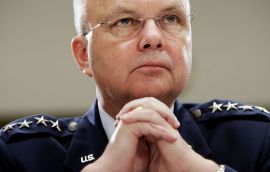Internet Tax Proposed by European to be Handled by U.N.
June 8, 2012
Taxes on large Internet providers is an attempt to set the precedent that taxes on the Web are somehow a good idea.
By DECLAN McCULLAGH | CNET.com | JUNE 8, 2012
The United Nations is considering a new Internet tax targeting the largest Web content providers, including Google, Facebook, Apple, and Netflix, that could cripple their ability to reach users in developing nations.
The European proposal, offered for debate at a December meeting of a U.N. agency called the International Telecommunication Union, would amend an existing telecommunications treaty by imposing heavy costs on popular Web sites and their network providers for the privilege of serving non-U.S. users, according to newly leaked documents.
The documents (No. 1No. 2) punctuate warnings that the Obama administration and Republican members of Congress raised last week about how secret negotiations at the ITU over an international communications treaty could result in a radical re-engineering of the Internet ecosystem and allow governments to monitor or restrict their citizens’ online activities.
“It’s extremely worrisome,” Sally Shipman Wentworth, senior manager for public policy at the Internet Society, says about the proposed Internet taxes. “It could create an enormous amount of legal uncertainty and commercial uncertainty.”
The leaked proposal was drafted by the European Telecommunications Network Operators Association, or ETNO, a Brussels-based lobby group representing companies in 35 nations that wants the ITU to mandate these fees.
While this is the first time this proposal been advanced, European network providers and phone companies have been bitterly complaining about U.S. content-providing companies for some time. France Telecom, Telecom Italia, and Vodafone Group, want to “require content providers like Apple and Google to pay fees linked to usage,” Bloomberg reportedlast December.
ETNO refers to it as the “principle of sending party network pays” — an idea borrowed from the system set up to handle payments for international phone calls, where the recipient’s network set the per minute price. If its proposal is adopted, it would spell an end to the Internet’s long-standing, successful design based on unmetered “peered” traffic, and effectively tax content providers to reach non-U.S. Internet users.
In a statement (PDF) sent to CNET on Friday morning, ETNO defended its proposal as “innovative” and said it had been adopted unanimously by its executive board. It would amend the treaties by saying, “to ensure an adequate return on investment in high bandwidth infrastructures, operating agencies shall negotiate commercial agreements to achieve a sustainable system of fair compensation for telecommunications services,” ETNO said.
Read Full Article →

